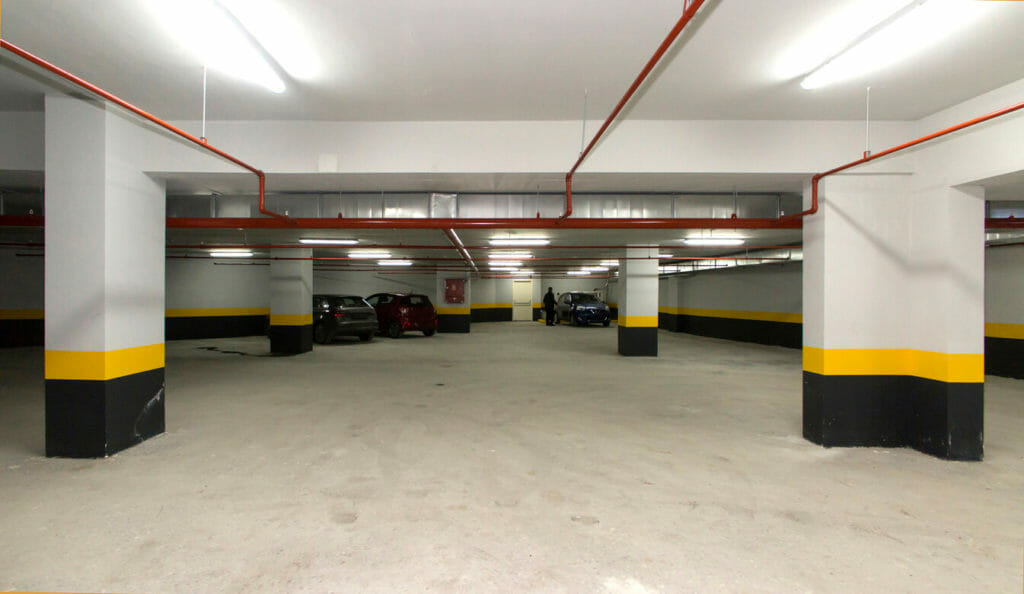In exchange for convenience, condo owners often have to sacrifice space. – and that goes beyond their units. Parking is usually limited and, in some cases, there are more vehicles than parking spots.
Download our free parking application template
Consequently, where and how residents and guests can park their vehicles is a common issue in condo communities. Different condominiums have implemented different solutions for managing parking, depending on the issues and how much parking space is available. In this article, we’ll explore a few of those solutions in order to help you put an end to parking wars.
How are parking rules determined?
Before you do anything, check your governing documents to see what they say about parking. These documents will almost always set out how parking is handled in your community.
Condo parking rules are often informed by city bylaws, but the association’s rules may be more restrictive due to space limitations.
It is possible to change parking rules, but changes may require support from the majority of owners before the new or altered rule comes into effect.
General parking versus assigned parking
Smaller condo communities may be able to offer parking on a first-come, first-served basis. However, big buildings in densely populated areas will likely require residents to pay for an assigned spot.
Common element parking spaces
If parking spots are considered common elements, that means they are available for use by all owners on a first-come, first-served basis. Residents may need to apply for a monthly or annual permit in order to use the parking spaces.
Exclusive-use parking
Parking spots that are considered to be limited common elements are allocated to a specific unit. These types of parking spaces don’t have their own separate legal titles, meaning the resident using the space does not actually own it. The resident can use the parking space subject to any restrictions in the association’s governing documents.
The resident who has permission to use a designated spot may rent it out to another resident, depending on the condo’s rules. While it is possible, the lack of separate legal titles for each space can make this a complicated situation. This means it can be difficult for the board or condo manager to keep track of which unit owner is parking in which space.
Parking units
Parking units have their own separate legal titles. They are legally owned by the residents who have been given the parking spaces. This means that the owner of the parking unit can lease or sell the parking space separately from the condo unit, subject to any restrictions in the corporation’s governing documents. Maintenance and repairs of such spots may be the responsibility of the owner.
While the owner has the right to lease or sell their spot, they may still be required to notify the board or property manager for the purpose of record-keeping. Even if it’s not mandatory, this should be done to avoid confusion about who is the rightful owner or lessee later on.
Guest parking
There are usually small areas of a parking garage dedicated to guest or visitor parking. Residents may be granted a limited number of free guest parking passes. Alternatively, visitors may be required to pay for parking.
Even though these spots are supposed to be for guests, residents who cannot access long-term parking due to unavailability—or those who don’t want to pay for a permanent spot—may park their vehicle in a guest spot.

Reasons why parking creates so many problems
Parking issues can sometimes be complex. But usually, the problems spawn from costs and limited availability. When considering prices, purchasing a parking spot can cost around $50,000 (that price can go as high as $200,000 in cities like New York, however). It seems like an outrageous price, but the average cost for developers to construct a single parking spot can range from $48,000 – $160,000 in a big city!
Renting a spot often makes more financial sense. But even that will cost around $100 – $300 per month.
Those willing to pay may still run into problems if there is a lack of availability. At the end of 2021, the city of Toronto announced that it would be adopting zoning bylaw amendments that will remove most requirements for new developments to provide a minimum number of parking spaces. At the same time, limits on the number of spaces that can be built will be added. This change will allow developers to build parking spaces based on market demand, but it could also make it more difficult for owners that do drive to secure spots.
Other problems may occur if there are parking facilities in the garage that are not technically part of the condo association. Or, if parking is not well monitored, residents may find that their designated spots are wrongfully being taken by someone else.
Managing parking
There’s no magic trick to managing condo parking. Regardless of what strategy you take, the most important thing to keep in mind is that you need a formal, fair system in place. If the building does not communicate or enforce the rules, there will be trouble in the parking garage.
Issue parking permits
If the condo’s parking spots are considered common elements, you can ask residents to submit applications for parking permits. Click here to see an example of a permit application.
Management must determine if permits will be issued monthly or annually, but for the sake of record-keeping, it may be easier to work with annual permits.
Once all available permits have been accounted for, the association could start a waiting list to ensure fairness.
Some condos also issue permits for guests. Permits may be free, or residents may be able to obtain them for a small fee. Associations are encouraged to limit the number of permits each unit is entitled to. This way, the same four or five people aren’t always taking up visitor parking spots.
Use software for parking management
Many software solutions have modules that allow the security or management team to log and track parking. If each unit has the option to pay for a designated spot, admins can document vehicle information using a Unit File feature. Management can log useful information about every resident, including their parking spot, the make and model of their vehicle, and their license plate number. This makes it far easier to verify that the right car is in the right spot.
If the condo also cares for guest parking, security or concierge can use Condo Control’s Visitor Parking feature. Residents can create their own visitor parking passes from their computer or mobile phone, and security can easily see a record of the approved guest permits. Limits can also be placed on the availability of parking passes so that residents cannot print off more than their fair share.
Enforce parking rules
Associations must enforce parking rules when a violation occurs. Otherwise, residents won’t be inclined to follow the rules.
If someone parks in a designated spot that doesn’t belong to them, or doesn’t have a current permit, then the person or team in charge of issuing violations should start the enforcement process. There are often enforcement steps laid out in the association’s governing documents, but in most cases, the offender will receive a warning letter first. Eventually, the car may be towed from the space. Software can help simplify the enforcement process, too.
It can be more challenging to enforce rules if it’s a visitor who is breaking them. The resident is responsible for the guest and, technically, all violations should be addressed to the resident. However, if staff cannot determine who the guest is visiting, then the association may decide to have the vehicle removed from the property.
If in doubt about what remedies are available to the condo, the board is strongly encouraged to contact an attorney.


